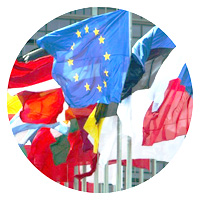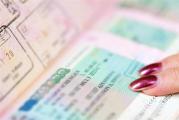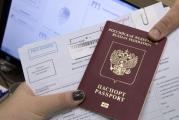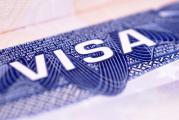Bulgaria Schengen?
Many people confuse the Schengen area and the European Union. They are confused because the vast majority of states that are members of the European Union are also members of the Schengen zone. However, these are completely different entities from a political and legal point of view. What is the difference?
The Schengen area or "Schengen" unites twenty-six European countries into a single customs and border area. In other words, the Schengen Agreement eliminated the borders between the member countries of the agreement, leaving only the external borders. Having received a Schengen visa, you can freely drive, fly, swim within the Schengen zone - that is, visit any of the twenty-six states. 
The European Union, on the other hand, includes twenty-eight countries, it is primarily a political and economic association created to standardize the laws of European countries, eliminate internal disagreements and barriers to close cooperation and mutual assistance. The European agreements themselves do not contain any regulations regarding border and customs control, they use the Schengen agreement for this. Thus, the Schengen area is, as it were, the "customs base" of the European Union.
But there are some interesting nuances here. As you have already noticed, there are more countries in the European Union than in the Schengen area. In reality, there are much more discrepancies: for example, Switzerland is included in the Schengen, but not in the European Union. The situation is reversed with countries such as Romania, Bulgaria and Croatia - they are members of the European Union, but have not yet been accepted into the Schengen area. So be careful, many people get a Bulgarian visa, and then, with unpleasant surprise, they find that they cannot travel freely around Europe on it.
 The Schengen area is larger than the Schengen area.
The Schengen area is larger than the Schengen area.
The statement in the title is paradoxical, but it is a fact - with a Schengen visa, you can visit more countries than are officially part of the Schengen without any additional procedures and delays. The fact is that there are four countries in Europe that have been wanting to join the Schengen Agreement for ten years, but other states from time to time make some kind of legal claims against them and block accession. At the same time, Bulgaria, Romania, Croatia and Cyprus have long been members of the European Union, but they are refused to be allowed into the Schengen zone because of their problems with corruption.
However, these countries unilaterally follow the rules of the Schengen area, probably hoping that this will contribute to the desired entry into the Schengen. What does this mean for the common man? This means that you, having a Schengen visa, can safely visit the same Bulgaria, as if it were in the Schengen zone. The same applies to Croatia, Cyprus, Romania, Norway, Iceland and some of the dwarf states of Europe. But traveling with visas of these countries across Europe will no longer work.
 Double and multiple entry visas.
Double and multiple entry visas.
Schengen visas are classified according to several parameters: principle of validity, validity period, number of times of use. You can get a visa for a single visit to the Schengen countries, but this is not suitable for the same businessmen who are often forced to travel to negotiations in Europe. Many tourists also prefer to get rid of the extra headache with visa processing every time they want.  etsya to relax in another European country.
etsya to relax in another European country.
Europe wisely went to meet such people and introduced double and multiple entry visas for the Schengen area. With such a visa, you can enter and leave the Schengen territory twice or as many times as you like - the main thing is that the total period of stay in the Schengen zone does not exceed that provided for by the visa. At the same time, one should not confuse the permitted period of stay and the validity of the visa itself.
Bulgaria fully follows the standards adopted in the Schengen area, so the legal possibilities of Bulgarian visas are almost no different from Schengen ones. Whether you want to relax in Bulgaria or have some business goals, you can apply for a double or multiple entry Bulgarian visa in order to be able to visit the country for several years. Of course, you will not be able to enter the territory of the Schengen countries on a Bulgarian visa, but visas issued by Bulgaria are fully recognized by Romania, Croatia and Cyprus (provided that you have a double or multi-card visa to Bulgaria) . Here is such a “mini-Schengen zone”.
 What is the best way to apply for a Bulgarian visa?
What is the best way to apply for a Bulgarian visa?
The European bureaucracy can be set as an example for the whole world in terms of the level of "advancement", transparency and efficiency. Almost all procedures are clearly regulated and take place without any delay, not to mention 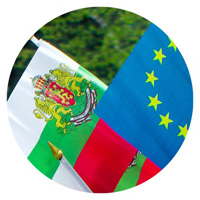 about such wild phenomena for a European official as a bribe. But things are still not so good and simple with Bulgaria. Remember that this country has not yet been admitted to the Schengen zone precisely because of corruption problems.
about such wild phenomena for a European official as a bribe. But things are still not so good and simple with Bulgaria. Remember that this country has not yet been admitted to the Schengen zone precisely because of corruption problems.
Indeed, obtaining a Bulgarian visa is a rather problematic procedure even by Russian standards. Problems arise already at the stage of collecting the necessary documents. The advice of friends and acquaintances cannot help here, the most complete and adequate information can only be given by the Bulgarian embassy itself. During the entire procedure for obtaining a Bulgarian visa, you will have to work closely with the embassy and visit it in person several times.
Fortunately, none of this is necessary. The company site works effectively with the Embassy of Bulgaria, reducing all paperwork to a minimum. Turning to the site, you can quickly, inexpensively and completely calmly apply for a single, double or multiple entry Bulgarian visa. It is not a problem to obtain a visa for property owners in Bulgaria.!

